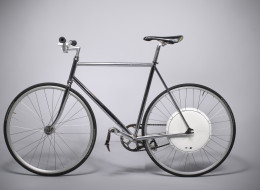This blog post was written in response to a blog post from the Maclean’s Business Blog. In one of the first comm 101 classes we spoke about managerial accounting, and we used WestJet as an example of a company that has a clear management accounting strategy. Their entire fleet consists of one type of plane (Boeing 737), and they fly the majority of their routes within Canada. However, the Calgary based airline recently made public their plan to start flying to Europe, starting with flights between St. John’s and Dublin. They also stated that they’re planning on having more routes in the future between Toronto and other major European cities so they can be more competitive with Air Canada. 
To me this seems like a bad idea because it’s completely separate from their current value proposition of offering good service flights within Canada*. It also means they would have to add larger planes to their fleet if they want to fly longer distances into Europe. Adding another model to their fleet would add heavy costs for training and spare parts. I’m cheering for them, but I doubt they’ll be able to successfully move away from their original low-cost formula.
*They also have routes from Vancouver to Hawaii/Los Angeles.
Sources:
http://www2.macleans.ca/2013/11/15/westjet-bound-for-europe/





